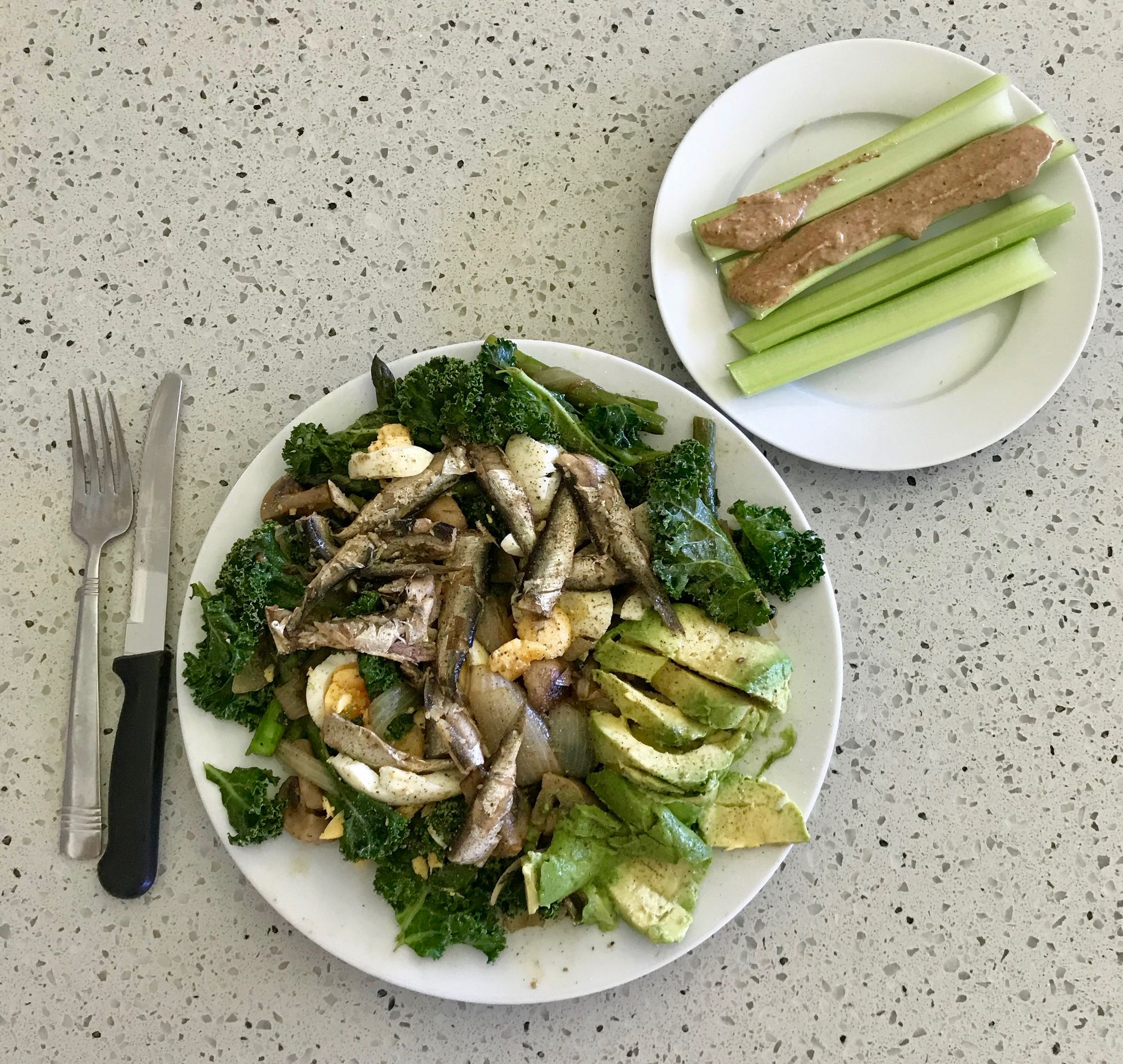How to get healthy: 3 kinds of dietary restriction

Telling someone how you eat is like telling them what religion you follow. Some want to hear about it, some don't and some want to immediately tell you how theirs is better.
What to eat can be a complicated question to answer. I've tried every kind of eating there is. All with the goal of improving my physical and mental performance whilst avoiding illness.
Every time I try a new way of eating, I'll come across a counter-argument of why it shouldn't work and why another way is better. So I'll try the new way and see if it works. If it doesn't, I'll try the next way. The most important thing I've found is there's no one-size-fits-all approach. What works for one person may not work for someone else.
It's not only the type of food you eat either. It's when you eat it, is it available, does it suit your lifestyle, do your beliefs influence your food choices, can you afford it? All of these come into play and every person will have a different answer.
When you do start to answer some of these questions, all ways of eating can be broken down into 3 categories, dietary restriction, calorie restriction, time restriction.
Dietary restriction deals with the restriction of certain kinds of foods. Vegans avoid all kinds of animal products, some people may avoid pork, others may steer clear of anything in a packet or fried foods. I've tried eating vegan, tried vegetarian and enjoyed it but eventually stopped. I found it too difficult to sustain the eating style with the lifestyle I was living. Many events, friends parties, work gatherings, I went to had no vegan options and it got to a point where I got sick of saying, 'I can't eat anything.'
Calorie restriction has no type of food restriction, only the amount. I measured the calories of foods I ate for 2-years straight. There were a set of scales in my kitchen and before every meal I was typing the measurements into my iPhone. If there was space to eat more, I'd combine random foods to make up the numbers to ensure I was consistent. This became a burden once you start to go to any kind of restaurant. Try bringing out a scale when you're having dinner with your family or girlfriend. Get real.
Time restriction, also referred to as intermittent fasting, gives you a window to eat and a window not to eat. You may only eat between the hours of 12 pm and 8 pm, meaning your feeding window is 8-hours long and your fasting window is 16-hours long. This is only one example too, you could do 12-hours of eating, 12-hours of fasting or 4-hours of eating and 16-hours of fasting. I've found this type of eating to be most sustainable over the long-term. It's simple, you're either in your feeding window or your not.
The worst kind of diet neglects all 3 of these. It has no dietary restriction, no calorie restriction and no time restriction. Eating like this is referred to as the Standard American Diet or SAD for short. Find anyone who adheres to the SAD and it's likely their health markers aren't ideal.
Do your research and you can find evidence supporting almost any kind of eating. As well as evidence against almost any type of eating. But the SAD is an outlier. It's what the 3 kinds of restriction, dietary, calorie and time have in common. They all have some kind of component which avoids the SAD.
I used to adhere to the SAD. I was overweight and unfit. I'd wake up, eat a bowl of cereal (refined carbohydrates) immediately, 2-hours later I was eating sandwiches and chips, 2-hours after that another sandwich washed down with soda, dinner would be some kind of burger and fries and there was always room for dessert. Reading that back it's hard to imagine doing the same again.
It took me a while experimenting with different ways of eating to figure out what worked for me. I had my dogma's. I'd tell people my way was better than theirs. Not so much anymore. Except if they're eating the SAD. Anything but the SAD.
My motto is: Good foods, less often.
You can define what good means to you. But I'm sure you're smart enough to figure it out. One of the best ways to do so is by learning to cook your own food. The counter to more options being available is most of them are garbage. Learning to make your own fresh food forces you to avoid most of the foods and characteristics which comprise a SAD diet.
Cook as much as you can from scratch. Adhering to this will mean you'll get the benefits of dietary restriction, calorie restriction and time restriction at the same time.
Cooking from scratch means you're avoiding over-processed foods, most things in a packet are unnecessary, seed oils and vegetable oils (far too high in Omega-6) are in everything and should be avoiding and you know the story about sugar. This takes care of dietary restriction by restricting poor quality food.
When you make your own meals, you'll start to learn how much fills you up and how much doesn't. When you leave the cooking to someone else, you're tricked into eating the quantity they offer you. Eating a restaurant may mean a plate being served with more than you'd usually eat. And because you've paid for it, you're not going to think twice about leaving an empty plate.
Cooking good food takes time. It becomes an event. If you're making your meals from scratch and try to eat every 2-hours, you'll be spending your whole life in the kitchen. This, coupled with an understanding of what size of meal fills you up gives you the benefits of time restriction and calorie restriction. Of course, the time restriction also comes from the fact you decide when to cook your own food.
I cooked a meal tonight. Salmon and greens. My godfather and I sat down to eat it. I started speaking.
It's impossible to get fat eating like this.
Why's that?
It took a while to cook so I can only do it so many times per day. The food here will keep us full of energy and sustained and there's not too much of it.
Outstanding mate. It's delicious too.
He was right.
Learning to cook was the best thing I did for my health. Making my own meals, making meals for loved ones, avoiding the SAD and adhering to dietary restriction, calorie restriction and time restriction.
What if I'm stuck? What if I'm out and can't cook? What if I'm at an event?
If you're out, time restriction is the easiest to adhere to. Most feelings of hunger pass in an hour or so. Most of the time you think you need to eat, it's out of habit rather than hunger.
And every so often, throw away the rule book. Forget the restrictions. Eat what you want. Enjoy it. Then come back to it.
